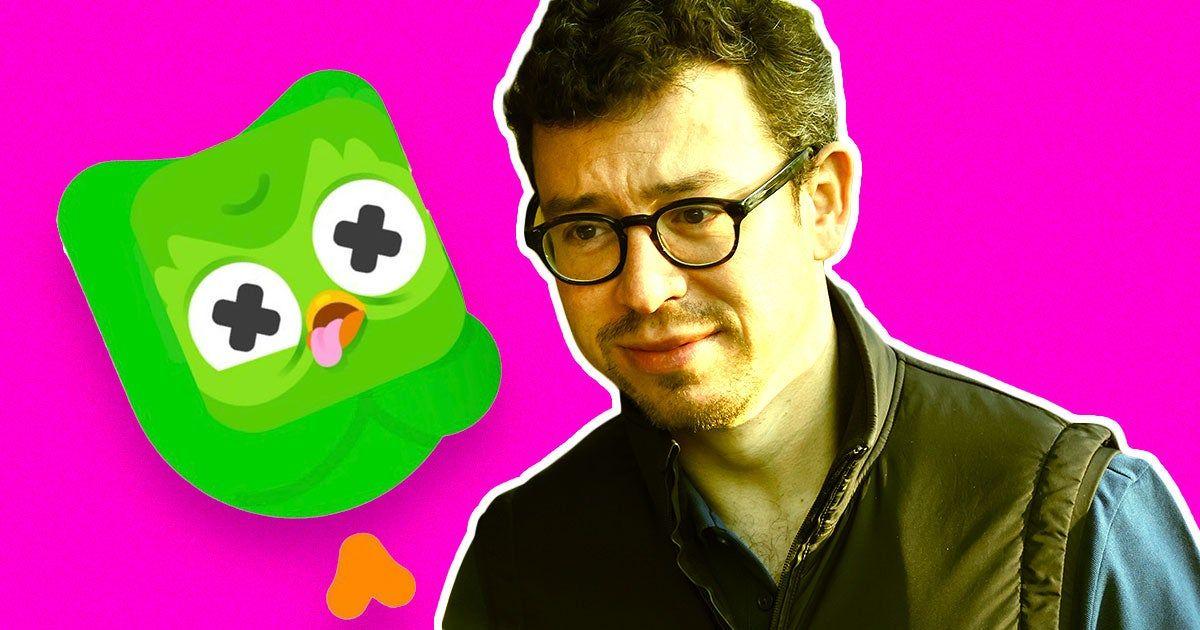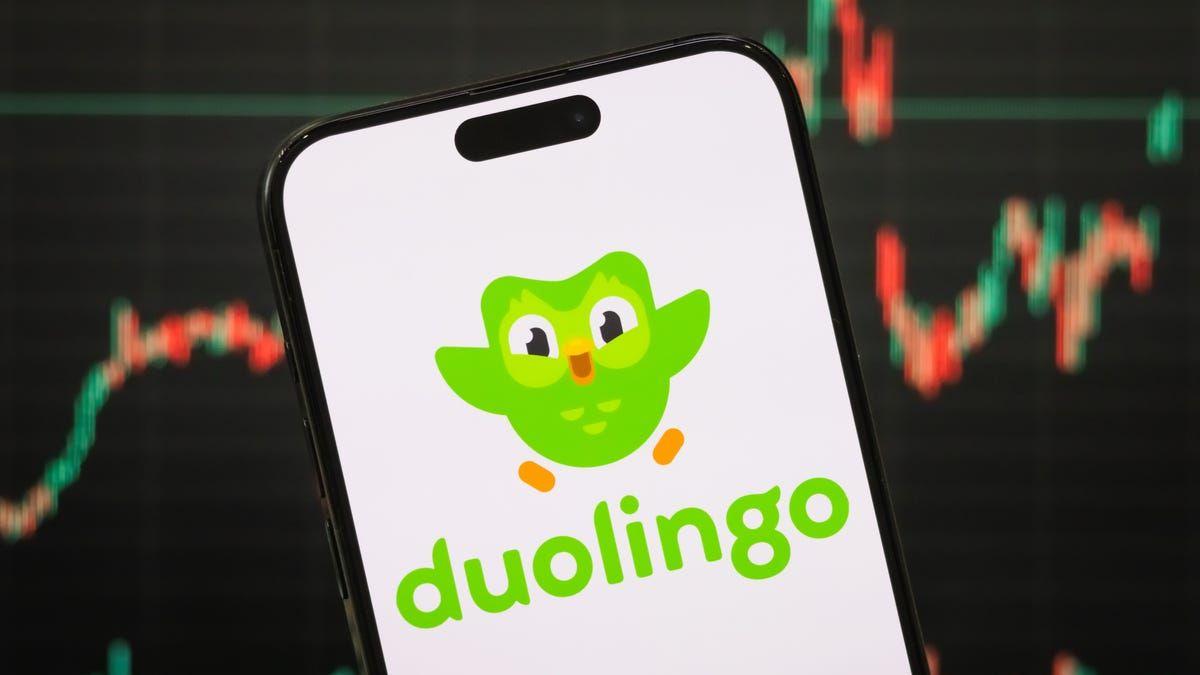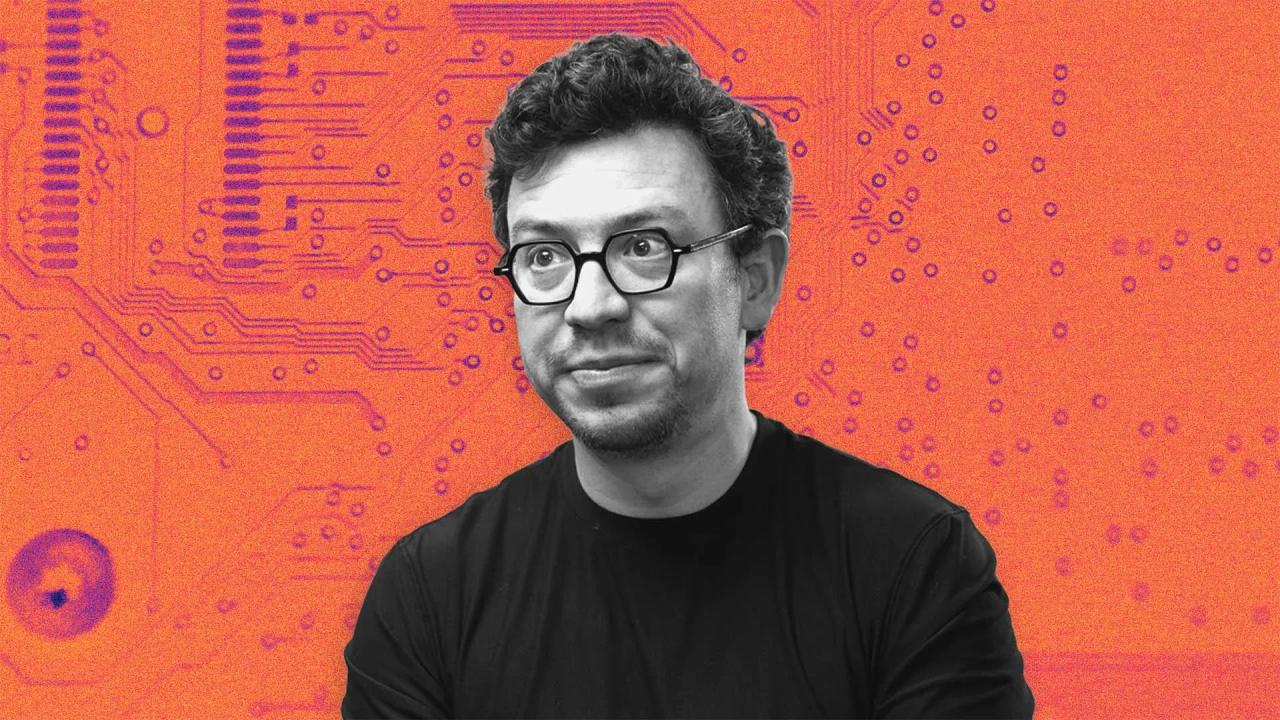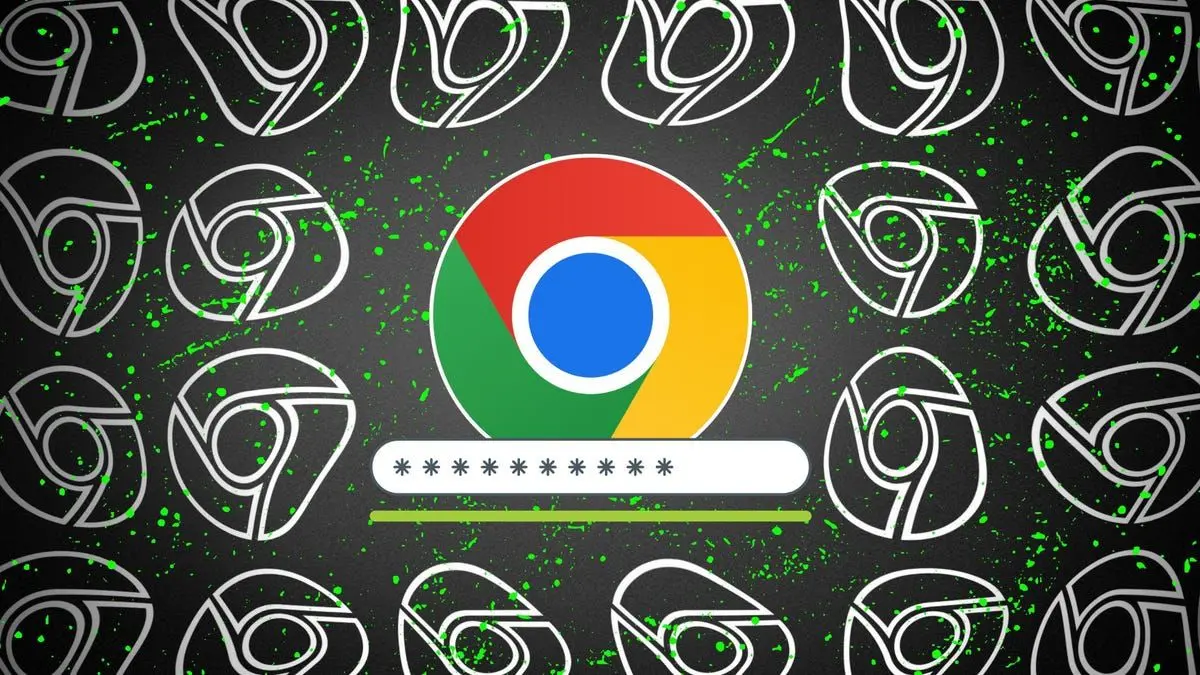Duolingo CEO Faces Backlash Over AI Implementation, Attempts Damage Control
3 Sources
3 Sources
[1]
Duolingo CEO Expresses Astonishment That People Were Mad When He Bragged About Replacing Workers With AI
Duolingo CEO Luis von Ahn is having major regrets after widely bragging about replacing human workers with AI. Earlier this year, von Ahn boasted that the language learning app company would "gradually stop using contractors to do work that AI can handle." At the time, the CEO said that "we can't wait until the technology is 100 percent perfect," enthusing that "we'd rather move with urgency and take occasional small hits on quality than move slowly and miss the moment." His enthusiasm for the tech was followed by a massive outpouring of criticism. Furious users on TikTok announced they'd be deleting the app en masse, their multi-year "streak" of daily use be damned. Bafflingly, the simmering anti-AI sentiment apparently caught von Ahn by surprise. "I did not expect the amount of blowback," he admitted in an new interview with the Financial Times, arguing that social media users had mischaracterized the changes as though "Duolingo has no employees, we have fired everyone and everything is being controlled by a massive AI." Of course, if AI were advanced enough to do that, his prior remarks suggest that he absolutely would. Tech companies have embraced AI tech at all costs, driven by massive hype surrounding the tech -- and consumers are quickly growing wary and frustrated. The race to replace human workers with tech hasn't sat well with many, establishing an entire anti-AI movement. Consumers have bristled at companies stuffing AI into virtually every aspect of their digital lives. To many, it's a race to the bottom, with AI automation undermining their livelihoods in exchange for dubious advancements in actual technical capabilities. But despite plenty of warning signs, von Ahn, a Silicon Valley mainstay whose net worth is just shy of $2 billion, says he didn't foresee the fallout. Last month, von Ahn went into damage control mode, telling Fortune that "I do not see AI as replacing what our employees do" and walking back his earlier promises of using AI instead of contractors. "I see it as a tool to accelerate what we do, at the same or better level of quality," he added at the time. "And the sooner we learn how to use it, and use it responsibly, the better off we will be in the long run." This week, he told the FT that there will be a "very small number of hourly contractors who are doing repetitive tasks that we no longer need." "Many of these people are probably going to be offered contractor jobs for other stuff," he added in an apparent attempt to extinguish the flames. According to von Ahn, AI isn't going anywhere, blowback or not -- an unsurprising stance given his immense vested interest. To the CEO, a "Black Mirror"-style dystopia where users get sucked into spending a "significant amount of time socially talking to AI" is "just inevitable," he told the FT.
[2]
Duolingo's CEO says workers need a 'mind shift' about AI
Duolingo (DUOL) CEO Luis von Ahn sparked backlash last month when he wrote in an all-hands company email that the popular language-learning app was going to be "AI-first." That email, when posted on LinkedIn (MSFT), drew hundreds of comments, many from users worried about what that meant for the company's employees -- and their 1,000-day streaks. Now, von Ahn has walked back some of his comments, telling The Financial Times that the move to being AI-first wasn't about mass layoffs but about rethinking how work gets done. "It's just a mind shift that people first try AI," he said. "It may be that AI doesn't actually solve the problem you're trying to solve . . . that's fine." Still, Duolingo, which has over 10 million paying subscribers, will be incorporating AI across the company, from content creation to internal tools. Von Ahn said that with AI, adding a language offering, which was once a labor-intensive process, could soon be done in a fraction of the time. "You no longer do the details and are more of a creative director," he told The Financial Times. "For the vast majority of jobs, this is what's going to happen." While a "very small number of hourly contractors" doing "repetitive" work were phased out (some were offered other roles), von Ahn has said the company isn't firing staff left and right. He clarified in a recent LinkedIn post that AI wouldn't replace employees and that Duolingo was "continuing to hire at the same speed as before." "I don't know exactly what's going to happen with AI, but I do know it's going to fundamentally change the way we work, and we have to get ahead of it," he wrote. "To be clear: I do not see AI as replacing what our employees do. ... I see it as a tool to accelerate what we do, at the same or better level of quality. And the sooner we learn how to use it, and use it responsibly, the better off we will be in the long run." Other companies are increasingly using AI to automate aspects of jobs, and von Ahn told The Financial Times that Duolingo was simply more transparent about its push to build AI into its workflow -- and underestimated how people would react. Duolingo's growth has remained strong: In the first fiscal quarter, revenue rose 38% year-over-year to $230 million and net income hit $35 million. The Pittsburgh, Pennsylvania-based company is also expanding into other learning areas, including music, math, and chess. But while the company's stock is up over 53% year-to-date, it has seen its shares fall a bit since von Ahn's original comments about AI -- and the resulting backlash from customers.
[3]
Why Duolingo's Founder is Doing Damage Control After AI Announcement
Von Ahn's big AI push seemed like a sensible, pragmatic move, at least on paper. But it generated extraordinary pushback from customers. Newspaper the Financial Times gathered together some comments: "Unbelievable," said one user on LinkedIn, "Cancelling my account NOW," "Well, there goes my 1,098 day streak," posted another. But it was more than this. The CEO's announcement triggered tough questions about the future of work, education, and the direction of the company brand. It also created a self-inflicted public relations crisis for the company, which successfully gamified language learning and developed a loyal customer base. Customers reported cancelling subscriptions in droves. The Times spoke to von Ahn, and he explained he feels many social media commentators actually misunderstood the "all-in" AI push to mean he was firing all his staff, and pivoting to a model where "everything is being controlled by a massive AI." This tapped in to public "anxiety" about the impact of AI on the workplace, potentially displacing real humans from their jobs -- a notion that's resulted in many worrisome headlines over the last year. Von Ahn said he really should've "been more clear to the external world" when explaining his AI push. He felt that one of his big slip-ups was being "open about it," even though "every tech company is doing similar things." Despite the negative public reaction, von Ahn says his own staff got what the plan was and "nobody misunderstood," because everyone knew Duolingo was "going to be a technology-forward company." The Times said the most questions staff had about the changes was about the idea their performance reviews were going to include checking on their AI use. Here Voh Ahn's intentions echo other pro-AI leaders, including drug maker Moderna's CEO Stéphane Bancel said last year he expected his staff to be consulting ChatGPT at least 20 times a day.
Share
Share
Copy Link
Duolingo CEO Luis von Ahn faces unexpected criticism after announcing plans to replace human workers with AI, leading to user boycotts and forcing him to clarify the company's AI strategy.
Duolingo's AI Announcement Sparks Controversy
Duolingo, the popular language learning app, found itself at the center of a heated debate after CEO Luis von Ahn announced the company's plans to become "AI-first." The announcement, initially made in an all-hands company email and later shared on LinkedIn, triggered a significant backlash from users and raised concerns about the future of work in the age of artificial intelligence
1
.User Backlash and Public Relations Crisis

Source: Futurism
The reaction to von Ahn's announcement was swift and severe. Many users expressed their disappointment and anger on social media platforms, with some even declaring they would delete the app despite years of maintaining daily learning streaks
1
. The controversy created a self-inflicted public relations crisis for Duolingo, threatening to undermine its loyal customer base3
.CEO's Surprise and Clarification
Von Ahn admitted to being caught off guard by the intensity of the negative response. In an interview with the Financial Times, he stated, "I did not expect the amount of blowback," and explained that social media users had mischaracterized the changes
1
. The CEO has since attempted to clarify the company's position, emphasizing that AI would not replace employees but rather serve as a tool to enhance productivity2
.AI Implementation and Workforce Impact

Source: Quartz
While von Ahn maintains that Duolingo is not planning mass layoffs, he acknowledged that a "very small number of hourly contractors" doing repetitive tasks would be phased out. Some of these contractors may be offered other roles within the company
2
. The CEO envisions AI as a means to accelerate work processes and potentially transform job roles, stating, "You no longer do the details and are more of a creative director"2
.Industry-wide AI Adoption
Von Ahn's comments reflect a broader trend in the tech industry, where companies are increasingly incorporating AI into their workflows. He suggested that Duolingo was simply more transparent about its AI push, which may have contributed to the intense public reaction
2
. This incident highlights the growing anxiety surrounding AI's impact on employment and the need for clear communication when implementing such technologies.Related Stories
Duolingo's Growth and Future Plans
Despite the controversy, Duolingo has reported strong financial performance. In the first fiscal quarter, the company saw a 38% year-over-year increase in revenue, reaching $230 million, with a net income of $35 million
2
. The company is also expanding its offerings beyond language learning to include subjects such as music, math, and chess.Lessons Learned and Moving Forward

Source: Inc.
The backlash against Duolingo's AI announcement serves as a cautionary tale for other companies considering similar transitions. Von Ahn acknowledged the need for clearer communication, especially when addressing sensitive topics like AI implementation and its potential impact on jobs
3
. As AI continues to reshape industries, companies will need to navigate the delicate balance between technological advancement and public perception.References
Summarized by
Navi
[1]
Related Stories
Duolingo CEO Clarifies 'AI-First' Strategy, Addressing Layoff Concerns and Future of Work
18 Aug 2025•Technology

Duolingo's AI-Powered Features Drive Record Growth and User Engagement
28 Feb 2025•Business and Economy

Klarna Reverses Course: Hiring Humans After AI Customer Service Falls Short
09 May 2025•Business and Economy

Recent Highlights
1
OpenAI secures $110 billion funding round from Amazon, Nvidia, and SoftBank at $730B valuation
Business and Economy

2
Trump orders federal agencies to ban Anthropic after Pentagon dispute over AI surveillance
Policy and Regulation

3
Google releases Nano Banana 2 AI image model with Pro quality at Flash speed
Technology





